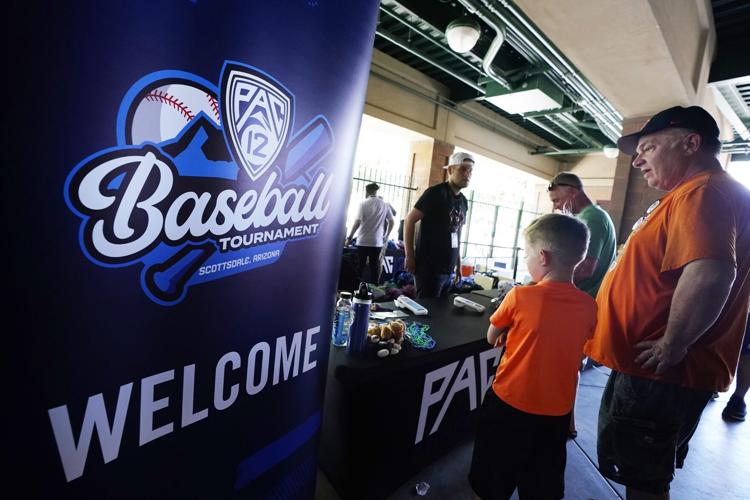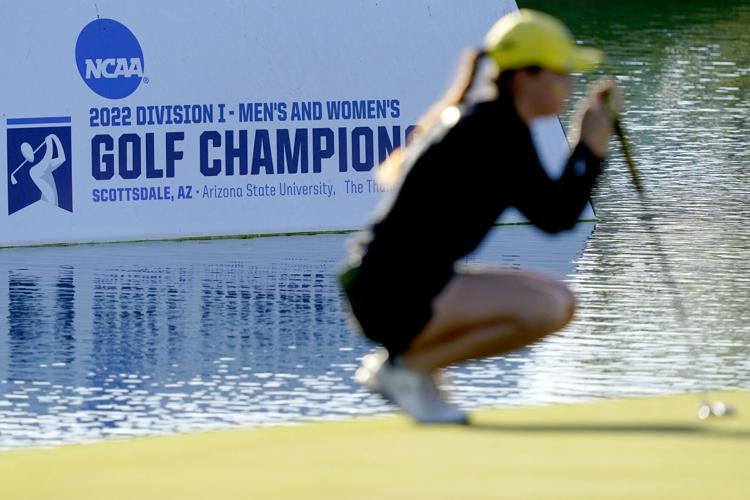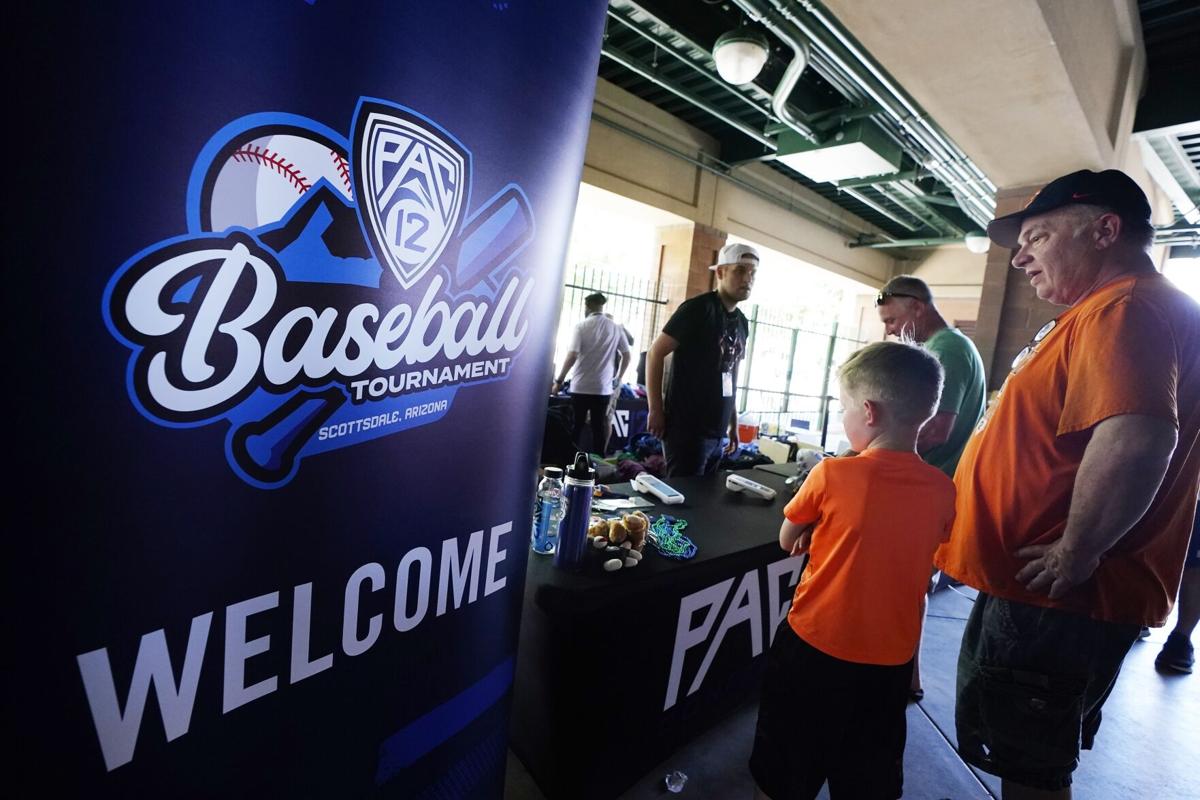We’ll pause from reporting on the eye-opening developments across college football to offer a truly insane piece of news: Phoenix has become a college sports town.
Granted, that isn’t a fixed existence. But last week, the Phoenix metro area was packed with NCAA events.
Naturally, the Pac-12 is heavily involved:
Arizona State hosted a softball Super Regional that began Friday.
The conference’s inaugural baseball tournament is unfolding at Scottsdale Stadium. The Pac-12 Tournament title game is scheduled for Sunday.
The NCAA is staging the men’s golf championship, with five Pac-12 teams participating, at Grayhawk Golf Club.
And in the just-completed NCAA women’s golf championships at Grayhawk, Stanford defeated Oregon to secure the conference’s 200th national title.
“A Commissioner’s favorite! Two @pac12 teams in the finals,” George Kliavkoff tweeted earlier this week.
None of this is to paint Phoenix as the new Eugene or Tucson.
But the cluster of collegiate events in the Valley this week provides us with a launch point to address a broader shift in the sporting scene — one that can only benefit the Pac-12 over time.
Combine the presence of State Farm Stadium in Glendale (home of the Arizona Cardinals since 2006) with the recent construction of football venues in Santa Clara (Levi’s Stadium), Los Angeles (SoFi) and Las Vegas (Allegiant), and the West has become an increasingly desirable region for major events.
Essentially, the landscape has changed the landscape:
The college football national championship was held at Levi’s Stadium in 2019 and is scheduled for SoFi in January.
The men’s Final Four was in Glendale five years ago and will return in 2024.
The women’s Final Four is headed to Phoenix in 2026.
Even the NFL has taken the plunge, awarding three consecutive Super Bowls to the region: SoFi Stadium last season, Phoenix State Farm Stadium next season and Allegiant Stadium in 2024.
Phoenix can’t match Las Vegas or Los Angeles for entertainment, but it has plenty of flights and hotel rooms and terrific weather most of the year. (The only drawback for collegiate events in the late spring is the potential for searing temperatures.)
“The marketplace has changed with the addition of the new buildings,” said Andy Bagnato of Phoenix-based Bagnato Pflipsen Communications, which specializes in sports marketing and public relations.

Oregon golfer Brian Chacon lines up her shot on the 18th green during Wednesday’s NCAA college women’s golf championship title match against Stanford. The tournament was held at Grayhawk Golf Club in Scottsdale, the same course that’s hosting the ongoing men’s championships.
“And when you consider Phoenix and Las Vegas have incredibly fast-growing populations, it makes sense that the NCAA would want to be involved.”
On this topic as on all topics, we have pondered the implications for Pac-12 football specifically and Pac-12 revenue generally.
Admittedly, the line is both indirect and dotted. Metro Phoenix, which covers 15,000 square miles, has emerged as a recruiting hotbed in the past decade.
With the booming population and improved coaching at the high school level, blue-chip prospects are commonplace and blue blood programs are frequent visitors.
The same is true, to a slightly lesser extent, of Las Vegas, where prep powers Bishop Gorman and Desert Pines regularly produce four- and five-star recruits.
The Pac-12 won’t experience a surge in recruiting success because major sporting events are staged in Phoenix and Las Vegas.
That said, the connection is non-zero.
“I tend to think of things as images,” Bagnato said. “If you have cities with all these major events, people across the country will think, ‘That must be a pretty good place, I should check it out.’
“Those kind of things add up and have an impact.”
Brand-building opportunities aren’t reserved for the prime revenue drivers (football and men’s basketball).
The Pac-12’s inaugural baseball tournament and newly-created softball tournament, which debuts next spring, will elevate the profile of two sports that have rising popularity and deep roots in the region.
Eventually, those events could become valuable pieces of media inventory for the conference.
And on that front, the connection is clear: Any new revenue benefits Pac-12 football.






